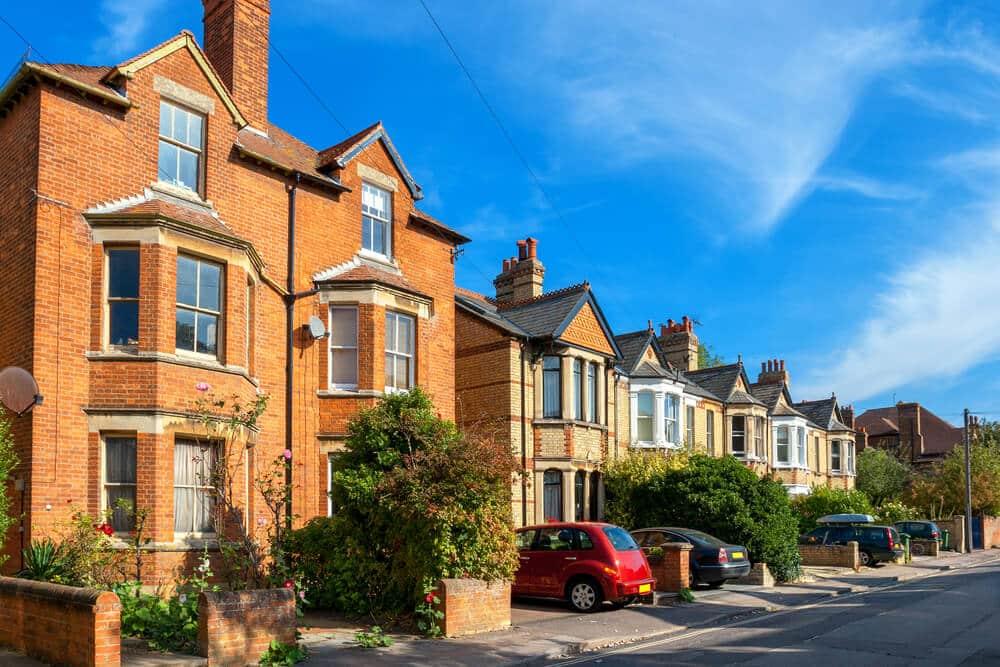Although some debts can start out as ‘unsecured’, if you do not make payments towards what you owe, creditors can take action to secure a debt against your home.
To do this, they need a type of court order known as a ‘charging order’.
A charging order is a very serious type of action – so if you’ve been threatened with one, it’s essential that you understand exactly what’s being threatened so you can take action.
In this guide, we’ll explore charging orders in-depth, answering commonly asked questions about how they work and what your options are if you’re worried that a debt will escalate to this level.
What is a Charging Order?
A charging order is a type of legal action that a creditor (a person or company you owe money to) can apply for that secures an outstanding debt to something you own – usually your home.
Charging orders were originally designed for unsecured debts like personal loans or credit cards.
These types of debts are referred to as ‘unsecured’ because, unlike a mortgage or hire-purchase agreement, they are not ‘secured’ against anything you own.
This means the lender will not repossess something you own if you fail to keep up payments. However, if you have a charging order issued against you, this changes.
A charging order is something of a last resort when it comes to collecting a debt. Most of the time, before you are issued a charging order, you will have been issued a county court judgment (CCJ).
If you don’t pay towards your CCJ, your credit can return to court and apply for a charging order. If you are issued with a charging order, the debt you owe becomes a ‘priority debt’ – meaning that if you don’t settle the debt, your creditor can eventually force the sale of your home to reclaim the amount owed.
As such, a charging order increases the risks associated with not paying a debt – since your property now effectively becomes the security that can be taken control of if you don’t make the payments required.
Charging orders only apply in England and Wales. However, similar actions can be taken by courts in Scotland and Northern Ireland.
We’ve helped over 250,000 with their debt
What kind of debts can lead to a charging order?
Almost any kind of unsecured debt can lead to a charging order if the creditor has previously had a CCJ issued against you.
Some examples include:
- Unsecured Personal Loans: If someone defaults on personal loan payments, the lender may go to court for a CCJ. If the debtor still doesn’t pay, the lender might then apply for a charging order.
- Credit Card Debts: If credit card balances aren’t paid, the credit card company may seek a CCJ and later a charging order.
- Utility Bills: Outstanding utility bills can escalate to a CCJ if not settled. Subsequently, the utility company can seek a charging order.
- Business Debts: If someone owes money related to a business transaction, this can also lead to a charging order if not paid following a CCJ.
- Overdrafts: If a bank account is overdrawn and the account holder does not repay the overdraft, the bank can apply for a CCJ followed by a charging order.
- Rent Arrears: Landlords can seek a CCJ for unpaid rent. If the rent isn’t then paid, they might go for a charging order.
- Service Charges or Ground Rent: For property owners, failure to pay service charges or ground rent can lead to a charging order.
- HMRC Debts: The HM Revenue and Customs can also apply for a charging order for unpaid taxes after obtaining a CCJ.
- Professional Fees: These could be fees owed to accountants, solicitors, or other professionals.
- Family Court Judgments: These can relate to financial settlements following a divorce or dissolution of a civil partnership. If not paid, they can escalate to a charging order.
Debts where a CCJ is not needed before a charging order
Although most charging orders are applied for after a CCJ has been issued, there are some instances where county court judgments are not required:
Bankruptcy: If you become bankrupt and you have equity in your home, it will normally be sold to settle your debts.
However, if you have little or no equity in your home, the official receiver may get a charging order instead.
This means that if you then sell or remortgage your home, some of the equity will go to the official receiver to pay towards debts.
Council Tax: If a local council gets a liability order for unpaid council tax, they can place a charging order on your property.
This is rare though – usually only happening if the council cannot get what’s owed in any other way, such as through an attachment or earnings or by using bailiffs.
Legal aid: If you get legal aid to support you with a court case, there are rare instances when the Legal Aid Agency can apply for a charging order on your home.
This is referred to as a ‘statutory charge’ and only applies if they need to recover the money they used to support your legal efforts.
When will a creditor apply for a charging order?
As we’ve already mentioned, a creditor can usually only apply for a charging order if they already have a county court judgment (CCJ) against you.
If they have a CCJ, they need to return to court again to apply for a charging order.
The rules about when a creditor can apply for a charging order changed in October 2012, so, before you go any further, it’s important to check the following information to see what their next steps could be. You should check:
- the date your creditor applied for the original CCJ
- the date the CCJ was granted
- what the CCJ says about repayments
If the CCJ was issued before 1 October 2012
If the creditor got a CCJ against you before 1 October 2012, they can only go on to apply for a charging order if either:
- You’ve missed the deadline for paying the full debt
- You’re paying the debt off in instalments and have missed one or more payments
If neither of these applies to you, you should attend the court hearing and provide evidence to the judge or court officer to prove this.
The judge will not issue a charging order if you can prove that none of the above applies to you.
If you have missed payments, it’s a good idea to try to catch up with them before the hearing date. If you can, the judge will not issue a charging order.
If the CCJ was issued after 1 October 2012
If the creditor who’s asking the county court for a charging order got a CCJ against you after 1 October 2012, they can apply for a charging order regardless of your payment history. This is true even if you are up to date with the payments you’re making as part of an instalment order.
What happens if I own my property jointly?
A charging order can be made against any item that you have an ‘interest’ in. This usually means a property that you own by yourself or part-own with someone else.
If you own the property in your sole name, the charging order is usually made against the whole property. This is often referred to as a ‘notice’.
If you own your home or property with someone else but the debt is in your name only, the charging order will be made against what is known as your ‘beneficial interest’ in the home.
This is officially referred to as a ‘restriction’ and means that if the property is sold, the debt can only be paid out of your share of the equity.
Charging orders also have an important effect if one person involved in a jointly owned property dies.
Ordinarily, the law says that two people who own a home do so as ‘joint tenants’ – meaning that if one person passes away, the home will pass automatically to the other person.
If a charging order is in place, it means that their share becomes part of their estate and won’t be automatically passed on.
Interim charging order vs. final charging order: What’s the difference?
If a creditor applies for a charging order, there are two stages to the process – the interim charging order and the final charging order.
Interim charging orders
An interim charging order is a step taken immediately. It is designed to prevent people from selling their property or rearranging their assets before a final charging order is put in place.
The following steps lead to an interim charging order being issued:
- Your creditor sends an application for a charging order to the County Court Money Centre. Along with the application, they will include proof from the Land Registry that you own, or jointly own, your property.
- As long as the court agrees that you own at least a share of the property and all other rules around issuing a charging order have been met, you’ll be sent an interim charging order on a form called an N86. You will also receive a copy of the creditor’s form – called an N379. These explain the reasons that the creditor applied for the order and will also be sent to your spouse or civil partner, as well as any joint owners of the property, your mortgage company, and any other lenders who have an interest in the property.
- The Land Registry will be sent a ‘restriction’ that stops you from selling your property until the final charging order hearing. The Land Registry will send you a B136 form to let you know this has happened.
Court Fee
When applying for a charging order, the creditor has to pay a fee to the court. They will add these court costs to the charging order debt that they think you already owe.
Final charging orders
If you haven’t made any objection to the interim charging order, the court office or the District Judge will decide whether or not the final charging order will be made.
If you have objected to the order, they may organise a hearing before deciding on this final order.
If a hearing is organised, it will be at the County Court hearing centre nearest to the judgment debtor’s home court. It will usually be held in private with yourself, a representative from the creditor involved, and a District Judge. The judge will listen to all the circumstances relating to the case and make a decision – along with any conditions they feel should apply.
If a final charging order is made, it will be confirmed during the hearing, and you’ll get an N87 letter from the court confirming the decision.
They actually care about their customers
I can’t rate this company highly enough. Extremely understanding, knowledgeable, and supportive staff.
Can I stop a final charging order?
If you don’t think you should receive a final charging order, you have to ‘object’ to the interim charging order.
To do this, you’ll need to write to the court and the creditor within 28 days of receiving the interim charging order.
The District Judge may then arrange a hearing so they can listen to the evidence and make a decision.
The court will pay special attention to two factors:
- The personal circumstances of the person who owes the debt; and,
- Whether or not any other creditor you owe money to would be ‘unduly prejudiced’ – meaning, would issuing a charging order leave other creditors at a disadvantage?
They will also look at the date your creditor applied for the CCJ that has to come before most charging orders, checking that:
- Your creditor applied for the CCJ money judgment on or after 1 October 2012
- Whether you were ordered to pay in instalments
- If you’re up to date with those instalments
Although everyone’s financial circumstances are different, the court will also listen to information about:
- Your personal circumstances
- Whether you have any other debts
- Whether or not you have ‘equity’ in your property
- Whether you own the property in jointly or on your own
Some of those personal circumstances might include:
- Does anyone who lives in your property have a serious illness or a disability?
- Any other debts you have
- If a charging order would disrupt other payment arrangements with other creditors
- If there’s a chance you could be made bankrupt in the future – therefore giving this creditor preference over other creditors
- If there are other ways for the court to enforce the debt
- Did the creditor give you the best product for you at the time?
- If you’re in ‘negative equity’ – owing more than the home is worth
Unfortunately, it can be very difficult to persuade a court that these factors should influence their decision – but it’s important to let them know everything, so they can make an informed decision.
Can I get breathing space to work out what to do?
“Breathing space” is a government-backed scheme that you might be able to use to help you work out what to do with your debt.
You can get breathing space at any time – but usually only once in every 12 months.
If you’re eligible for the breathing space scheme, you may be able to get 60 days of space where your creditor cannot force your eviction, contact you about debts, take any action forcing you to pay, or add any interest or charges to the debt.
It’s worth understanding that if you fall behind any further during your breathing space, your creditor could still contact you about that.
Is interest charged on a charging order?
Whether or not interest is charged on a debt that’s been turned into a charging order depends on the type of debt that the creditor is chasing and whether or not it was regulated by the Consumer Credit Act.
If the debt was regulated by the Consumer Credit Act
If the debt is regulated by the CCA, then interest on the debt stops when a CCJ is issued. The CCA covers many different types of debt, including credit cards, personal loans, payday loans, store cards, overdrafts and similar.
If the debt was not regulated by the Consumer Credit Act
If the debt was not covered by the CCA and it’s over £5,000, then a type of interest called “statutory interest” of 8% is added to what’s owed.
This applies to debts like council tax arrears, benefits overpayments, and utility bill debts.
This kind of statutory interest cannot be stopped or reduced.
Does a charging order mean my house will be sold?
Getting a charging order doesn’t automatically mean your house will be sold – but it’s possible in some cases.
If a creditor has been granted a final charging order, they can then apply for something known as an ‘order for sale’.
This is a court order that forces you to sell your home and then use the money you make to pay your charging order debt.
Whether or not a creditor can do this depends on the type of debt you owe. If you owe less than £1,000 (including court costs) and your debt is covered by the Consumer Credit Act, then they cannot force you to sell.
What happens after a creditor applies for an order for sale
After applying for an order for sale, the court will make a decision on whether it can be granted. This can only happen either:
- The property and the debt are in your name only
- The property has joint owners, and the debt is in both your names
- The property is owned by you and someone else, but the debt is in your name only – but this makes it harder for the creditor
Personal circumstances will be carefully considered by the court when a creditor applies for an order for sale.
For this reason, it’s especially important for anyone else with an interest in the property (such as a husband or wife who isn’t a joint owner but lives in the house) to attend court to explain their situation. This kind of situation is again known as a ‘beneficial interest’, so they might be considered to have a share in the property by the judge.
Sometimes, a judge will order a suspension of the order for sale. This might be the case if you have children – preventing the order from going ahead until they are grown up and old enough to move out.
The judge will look at your overall circumstance, including that of your family, and then make a decision from there.
How we helped Paige
Customer monthly repayments before and after entering an IVA

Repayments reduced by 70%
Monthly payments are based on individual financial circumstances
What happens if my house is sold?
If an order for sale is made and is not suspended until a later date, the court will normally give you 28 days to either pay the debt or leave your home.
If you don’t pay the debt off or vacate the property, the creditor will have to go back to court again and apply for something known as a ‘warrant of possession’.
If granted, this gives the creditor the legal right to take possession of the home – and they will often come with bailiffs to take possession of your home.
Order for Sale: Seeking professional advice
An order for sale can, understandably, be extremely distressing for you and anyone you live with. If a creditor is threatening this, it’s essential that you seek professional debt advice as quickly as possible to find out what options you have.
Are you facing a charging order?
As you can now no doubt tell, a charging order and the possible order for sale that could follow it are extremely serious and could see you evicted from your home.
If a creditor decides to apply for a charging order, they could then move to ask that your home is sold – so any mention of a charging order should be immediately followed by seeking professional debt advice and exploring your options.
Debt advisors may be able to help you put together a case to take to court to help you object to an interim order, the charging order or the order for sale – or they may be able to talk you through debt solutions that put a halt to legal action being taken against you.





